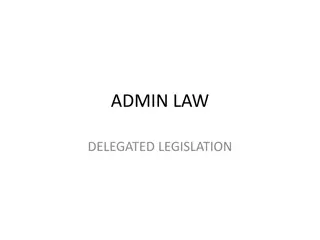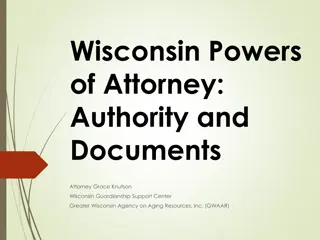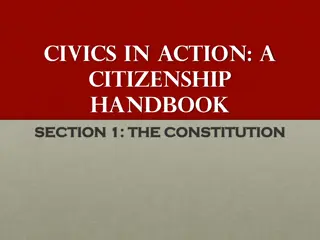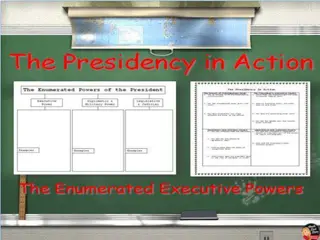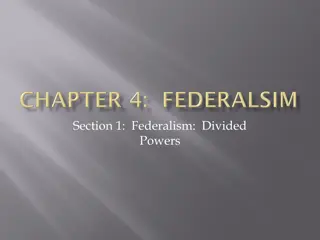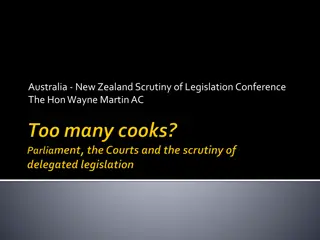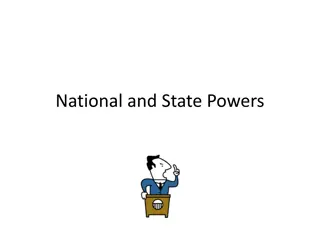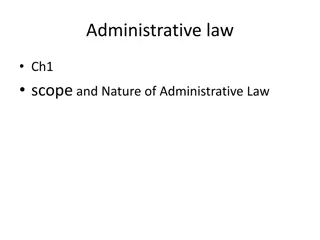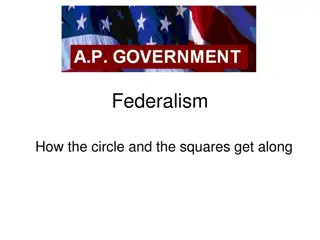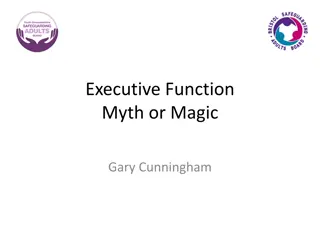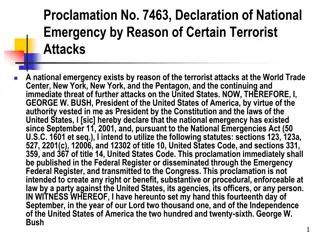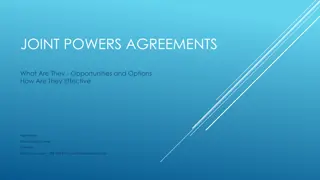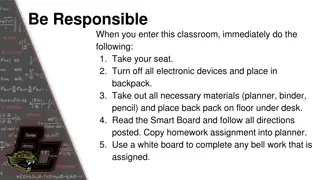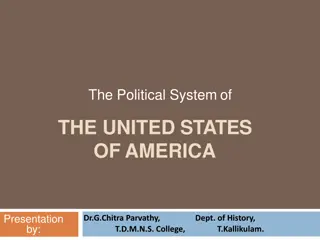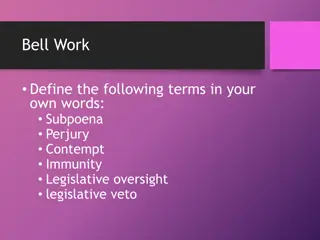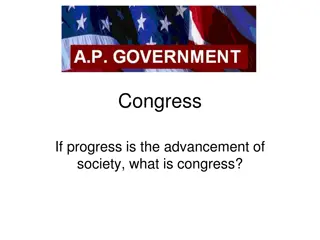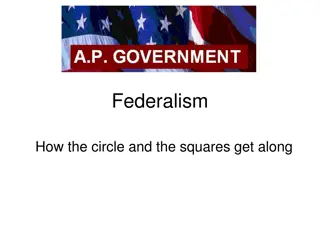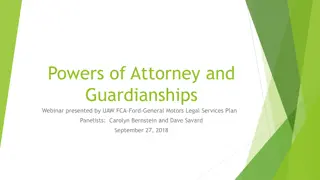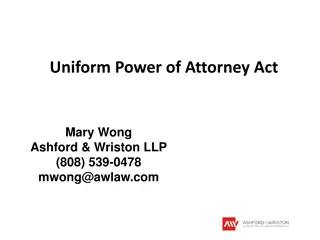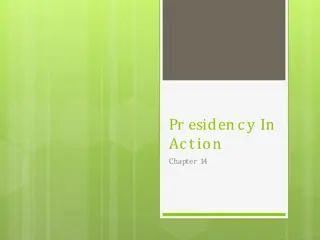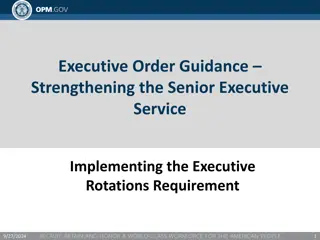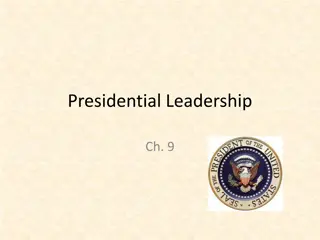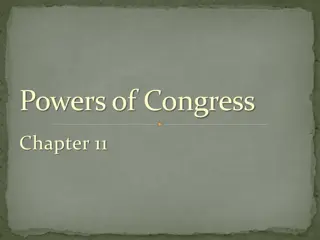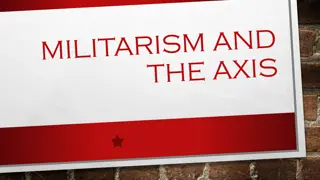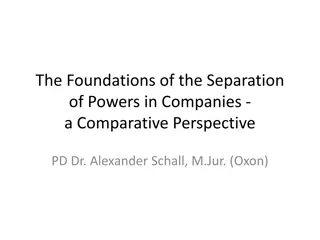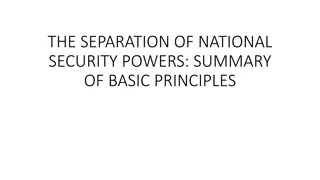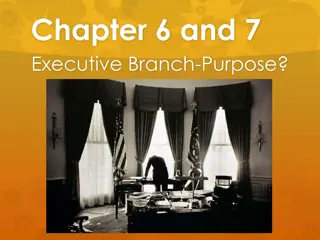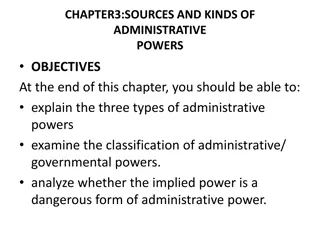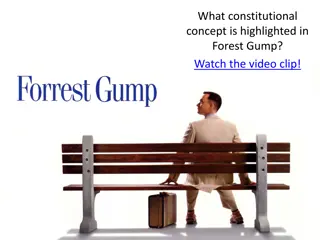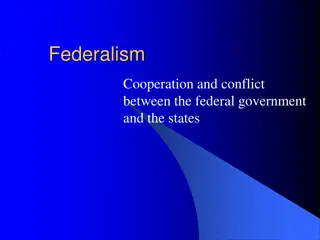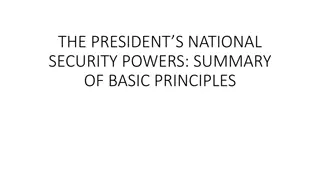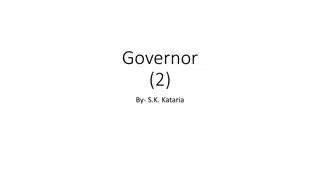READ⚡[PDF]✔ Emerging Space Powers: The New Space Programs of Asia, the Middle Ea
\"COPY LINK HERE ; https:\/\/getpdf.readbooks.link\/B004NNUV54\n\n[READ DOWNLOAD] Emerging Space Powers: The New Space Programs of Asia, the Middle East and South-America (Springer Praxis Books) | Emerging Space Powers: The New Space Programs of Asia, the Middle East and South-America (Springer Pra
1 views • 6 slides
Understanding Separation of Powers in Constitutional Law
Explore the concept of separation of powers in constitutional law, as depicted through the lens of the Diploma in Law program from Malta. Learn about the principles of checks and balances, the relationship between the Executive and the Legislature, and the significance of the rule of law in a democr
0 views • 10 slides
In Pursuit of Excellence: Executive Recruiters and High-Level Talent Acquisition
\"In 'In Pursuit of Excellence,' we delve into the pivotal role of executive recruiters in high-level talent acquisition. Discover how these professionals identify, attract, and place top-tier candidates, driving organizational success and shaping the future of leadership. Explore the strategies, ch
3 views • 7 slides
Leading with Numbers: The CFO Executive Search Strategy Guide
\"Leading with Numbers: The CFO Executive Search Strategy Guide\" offers essential insights for organizations seeking top-tier financial leadership. Explore specialized resources, rigorous screening, and alignment with organizational culture for successful CFO recruitment. Elevate your executive sea
2 views • 6 slides
Navigating the Executive Landscape: The Art of C-Level Recruitment
\"Navigating the Executive Landscape: The Art of C-Level Recruitment\" is a comprehensive guide for C-level recruiters, providing invaluable insights and strategies for navigating the complexities of c level recruitment. Delve into the intricacies of executive search with expert guidance tailored to
2 views • 6 slides
Elevating Security Leadership: CISO Executive Search Solutions
\"Elevating Security Leadership: CISO Executive Search Solutions\" offers tailored strategies for organizations seeking top-tier Chief Information Security Officers. Alliance Recruitment Agency provides expert insights and solutions in navigating the complexities of CISO executive search, ensuring a
0 views • 6 slides
Understanding Police Powers on the Street Webinar
Explore the powers and procedures of police officers on the street in this informative webinar featuring Sophie Leaver, a Police and Administrative Law Solicitor from Redfern Legal Centre. Topics covered include where police derive their powers, identity requests, personal searches, complaints proce
4 views • 44 slides
Understanding Delegated Legislation in Admin Law
Explore the significance of delegated legislation in government affairs, its interrelation with separation of powers, and the delegation of legislative, executive, and judicial powers. Learn about the definition, validity, hierarchy, and importance of delegated legislation through real-world example
0 views • 12 slides
Understanding Wisconsin Powers of Attorney: Core Concepts and Types
Explore the essential concepts of powers of attorney in Wisconsin, including self-determination, legal documentation, next of kin laws, and types such as health care and finance powers. Learn about the authority granted to agents and the implications of durable power of attorney.
0 views • 51 slides
Understanding the Foundation of US Government: The Constitution and its Principles
The Constitution of the United States outlines key principles governing the government, including popular sovereignty, republicanism, limited government, federalism, separation of powers, checks and balances, and individual rights. It establishes six goals for the US government and delineates the po
2 views • 12 slides
Understanding the Presidency: Powers and Views
The Presidency in Action explores the enumerated executive powers and the growth of presidential power, reflecting on how different Presidents view and exercise their authority. It delves into the broad versus strict views of the office, the foundation of executive power in Article II of the Constit
0 views • 20 slides
Understanding Federalism: Divided Powers and Constitutional Framework
Federalism is a system where powers are divided between a central government and regional entities. It involves delegated, reserved, exclusive, and concurrent powers outlined in the Constitution. The supremacy of the Constitution is pivotal in establishing a unified federal government.
0 views • 5 slides
Challenges in Legislative Scrutiny and Democratic Accountability
The Australia-New Zealand Scrutiny of Legislation Conference delves into the issue of an increasing number of laws being made by the executive branch rather than by Parliament, raising concerns about democratic accountability. Historical examples, such as Henry VIII's Statute of Proclamations, highl
0 views • 25 slides
Understanding National and State Powers in the United States
The Constitution grants specific powers to the national government, including expressed, implied, and inherent powers. States have reserved powers, and there are concurrent powers shared by both levels of government. The Supremacy Clause ensures that national laws take precedence over state laws. Ex
0 views • 13 slides
Understanding Administrative Law: Scope and Nature
Administrative law is a branch of public law that governs the relationship between the state and its citizens, regulating how power is exercised by the executive branch and administrative agencies. It sets legal limits to ensure protection against abuse of power and arbitrariness, focusing on the or
0 views • 26 slides
Understanding Federalism in the United States
Federalism in the United States involves the relationship between the federal government and state governments, with terms such as delegated powers, reserved powers, concurrent powers, and the Elastic Clause playing key roles. The aftermath of events like Hurricane Katrina and policies such as No Ch
0 views • 30 slides
Understanding Executive Functioning and Executive Dysfunction
Executive Functioning is a key aspect of cognitive function, encompassing various abilities such as planning, self-awareness, and emotion regulation. Executive Dysfunction, often resulting from frontal lobe injuries, can lead to difficulties in decision-making, social interactions, and learning. Thi
1 views • 21 slides
Understanding National Emergency Declarations and Emergency Powers Laws
This content delves into the legal aspects of national emergency declarations, emergency powers laws, and judicial review of emergency declarations. It covers the purpose, termination, historical context, congressional oversight, and impact on presidential powers. It also explores the complexities o
0 views • 6 slides
Understanding Joint Powers Agreements: Opportunities, Options, and Effectiveness
Joint Powers Agreements (JPAs) enable public agencies to collaborate efficiently, providing services and facilities in line with various factors. Idaho Code outlines the purposes, definitions, and powers that can be jointly exercised. This legal framework facilitates cooperation among entities, alth
0 views • 34 slides
Classroom Guidelines for Lesson on Properties of Exponents
Follow the classroom guidelines for this lesson on Properties of Exponents. Learn about the rules of exponents, how to simplify expressions, and complete bell work matching equations with properties. Homework includes worksheets on horse-breeding and dog eating table scraps. Understand product, quot
0 views • 10 slides
The Political System of the United States of America
The presentation by Dr. G. Chitra Parvathy explores the political system of the United States, highlighting its historical development as the oldest continuous democracy. The division of powers into the legislative, executive, and judicial branches, along with the roles of the President, Senate, Hou
0 views • 13 slides
Understanding Legal Terms and Congressional Powers in the US Government
This content covers the definitions of legal terms like subpoena, perjury, contempt, immunity, legislative oversight, and legislative veto, along with the powers of investigation and oversight in the US Congress. It also highlights the balance of power between the executive and legislative branches,
0 views • 15 slides
Understanding the Role and Structure of Congress in the US Government
Congress, as the legislative branch of the US government, plays a vital role in advancing society by making laws and representing the interests of the American people. Founded with intentions to balance powers and represent states of different sizes, Congress is divided into the House of Representat
0 views • 32 slides
Understanding Federalism: Powers, Relationships, and Key Terms
Explore the concept of Federalism through the relationship between the federal government (circle) and state governments (squares). Discover the powers involved such as Delegated, Reserved, Concurrent, and Prohibited powers. Delve into significant cases like McCulloch v. Maryland, terms like the Ela
0 views • 28 slides
Understanding Powers of Attorney and Guardianships Presentation
This presentation covers important aspects of Powers of Attorney and Guardianships, including types of powers of attorneys, when they are needed, who should be given power of attorney, responsibilities if named as an attorney, and considerations regarding revocation. It also discusses the need for g
0 views • 11 slides
Understanding the Uniform Power of Attorney Act and Hawaii Act 22
Explore the significance of the Uniform Power of Attorney Act and Hawaii Act 22 regarding Powers of Attorney, termination of agent's authority, general powers granted, and more. Learn about the legal document granting authority to act on behalf of a principal and the termination clauses that may be
0 views • 22 slides
Understanding Presidential Powers in the United States
The content discusses various powers of the President of the United States, including oath of office, executive orders, appointment power, removal power, diplomatic and military powers, treaties and agreements, commander-in-chief role, and legislative and judicial powers. It covers aspects like maki
0 views • 12 slides
Strengthening the Senior Executive Service: Executive Rotations Guidance
This executive order provides guidance on implementing the Executive Rotations Requirement to enhance talent development, mission delivery, and collaboration within the Senior Executive Service. It outlines the definition of rotations, examples of rotation types, a two-year rotations plan, and requi
0 views • 12 slides
Powers of Congress: Legislative, Implied, and Congressional Powers Explained
Explore the various powers of Congress, including legislative powers such as enumerated and implied powers, as well as congressional powers like regulating commerce and funding the government through taxes. Discover how Congress exercises authority granted by the Constitution to fulfill its roles an
0 views • 23 slides
Understanding Presidential Powers and Leadership in the U.S.
The Constitution lays a broad framework for presidential powers, with inherent powers being claimed by presidents outside the Constitution. Informal sources of power, such as executive privilege, also play a role. Modern presidents use mass media to build support for their ideas but face limitations
0 views • 21 slides
Powers of Congress and Constitutional Framework
The powers of Congress in the United States are shaped and limited by two fundamental facts: limited government and a federal system. The Constitution grants Congress powers through expressed, implied, and inherent powers. The Congressional view of power varies between strict constructionists and li
0 views • 25 slides
The Formation and Goals of the Axis Powers in World War II
The Axis Powers, composed of Italy, Japan, and Germany, were established to challenge the existing European order and expand their influence. Through alliances and shared military ambitions, they aimed to dominate different regions of the world during World War II, with Germany targeting Europe, Ita
0 views • 8 slides
The Foundations of the Separation of Powers in Companies
The separation of powers in companies is based on the dualism of organs: the Board and General Meeting. The actual situation in companies diverges between large public companies with autonomous management and smaller private companies with owner-operators. The search for the foundations of the separ
0 views • 15 slides
Understanding the Separation of National Security Powers
The separation of national security powers involves the formalist view where Congress makes laws, the Executive executes them, and the courts interpret them. The branches' powers are often blurred, with Congress able to delegate lawmaking power to the Executive. The Executive can also acquire custom
0 views • 8 slides
Understanding the Executive Branch of the United States Government
The executive branch in the United States plays a crucial role in governance. It includes the President and Vice President, who have specific qualifications for office. The election process, term limits, and powers of the President are detailed, highlighting responsibilities from appointing official
0 views • 24 slides
Understanding Administrative Powers and Objectives
Explore the sources and types of administrative powers, including express, implied, and incidental powers. Delve into the classification of governmental powers and evaluate the implications of implied powers. Gain insights into how constitutional provisions and delegated legislation contribute to th
0 views • 16 slides
Understanding Federalism in the US Constitution
Forest Gump showcases the conflict between state and federal powers, exemplified by Governor George Wallace's refusal to desegregate the University of Alabama. The scenario underscores the concept of federalism, which isn't explicitly stated in the Constitution but is evident in the division of powe
0 views • 18 slides
Understanding Federalism: Cooperation and Conflict Between Governments
Federalism entails the division and sharing of powers between national and state governments, aiming for cooperative problem-solving. James Madison highlighted the need for checks and balances to control government abuse. The Constitution delegates specific powers to the national government while al
0 views • 9 slides
Presidential National Security Powers: Summary of Basic Principles
In Zivotofsky II, the Supreme Court recognized the President's exclusive implied powers despite acknowledging the role of Congress in lawmaking. While the President engages in foreign affairs activities, no general plenary and exclusive foreign affairs power is explicitly vested in the Constitution.
0 views • 9 slides
Role and Powers of a State Governor in India
The Constitution of India outlines the executive powers and duties of a State Governor, including the ability to grant pardons, reprieves, and make orders on behalf of the government. The Governor is advised by a Council of Ministers led by the Chief Minister, with certain functions requiring the Go
0 views • 9 slides
![READ⚡[PDF]✔ Emerging Space Powers: The New Space Programs of Asia, the Middle Ea](/thumb/21554/read-pdf-emerging-space-powers-the-new-space-programs-of-asia-the-middle-ea.jpg)






